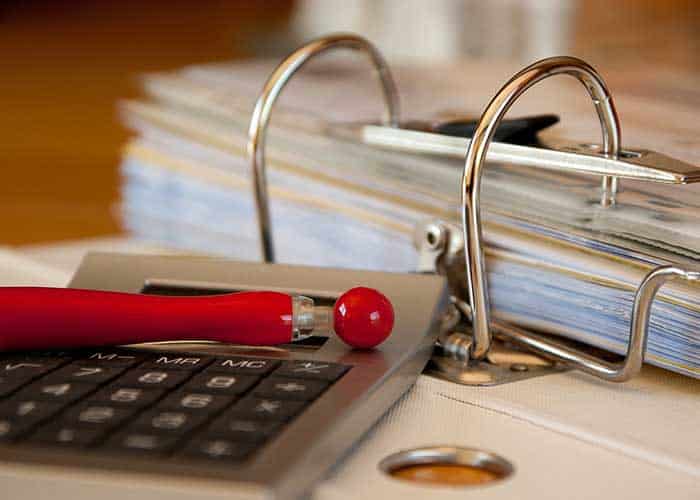Would you rather eat that ATM receipt than risk seeing your balance? You are not alone. Keeping tabs on money can be stressful and confusing. Even though you know you should be keeping track of your finances, it can be easier to ignore balances, credit card statements, and bills.
But what is easy now may become difficult to digest later. Avoidance can lead to overdrafts, lower credit ratings, debt, and possibly missed opportunities to save and invest.
Does that remind you of something ? Don’t feel guilty, says Justin Nichols, certified financial planner and chief operating officer of the Garrett Planning Network. He talks about it to clients who find themselves in this situation: « Let’s get started right away and come up with a plan to move forward. »
You are already making moves by clicking on this article. Read on to learn how to master neglected finances.
Summary
Determine if you need professional help
These tips are very useful for people whose finances are not yet in dire straits – simply ignored. However, avoidance is especially easy (and harmful) when you’re financially overwhelmed, says Sarah Newcomb, behavioral economist for Morningstar and author of « Loaded: Money, Psychology, and How to Move On Without Leaving Your Values behind you. »
If you can’t meet your basic needs or feel like you’re drowning in debt, talk to a nonprofit credit counseling organization. Credit counselors offer free help with budgeting and may be able to create a plan to consolidate your debt and lower the interest rate.
Read also: How to manage your finances?
Schedule financial audits
Acknowledge any anxiety you feel about managing your finances, says Amanda Clayman, psychotherapist and financial wellness coach. “Anxiety drains our focus and our energy,” she says, making problem solving difficult.
If you only take care of your finances when you’re feeling bad, you may associate this behavior with negative feelings. Clayman gives the example of a shocking, freaking out, and picking this moment credit card statement to deal with your overspending problem.
Rather than waiting to be preoccupied with anxiety, Clayman recommends scheduling a weekly financial checkup at a neutral time. The idea is to « reprogram your emotional experience around money so you can be much more effective, » she says.
Take 30 minutes each week to review your spending and checking and savings account balances, as well as any outstanding debt. Then, take note of any upcoming bills or other financial events — like payday — and make a vague plan to prepare for pending expenses.
If you feel overwhelmed by a 30-minute exam, Clayman suggests starting with 15 minutes or even five minutes. (Perhaps you’re just writing down your balances.)
Control your anxiety by focusing only on your current financial situation. However, over time, getting to know your money today could help you prepare for the future. For example, expense tracking could allow you to spend less and have money to dispose of. Or, after reviewing your paychecks, you may decide to contribute to your 401(k), a tax-advantaged retirement savings account offered by some employers. (Contribute at least enough to get all the matching funds offered by your employer.)
Tackle small and achievable goals
Behavioral change “comes down to our sense of identity,” says Ms Newcomb, who was previously unaware of her own finances. For example, she says: If you’re okay with being someone who pays bills late, you’ll probably continue to do so.
« There came a point where I decided I didn’t want to be that person anymore, » Newcomb says. « Being a person in control of your finances is the point – it’s not that I care as long as the power company has their money. »
Tackle small, achievable goals, like those checkups, to start identifying yourself as a financially responsible person, too. To identify your goals, Newcomb asks, « What things look like a punch in the stomach when you see them? »
Shame of overdrafts? Go the next two months without one of them, then two more months. Are you paying your bills late? Make each of next month’s payments on time. (And for every bill, set up self-pay, which Newcomb describes as a “godsend.”) Bad credit score? Aim for a certain score within a few years and learn what can help you, such as making payments on time and keeping your credit card balance below 30% of your overall limit.
Collect your rewards
Establish this positive association with money management by rewarding yourself. Treat yourself to ice cream or your favorite TV show after your weekly check-in, for example.
Some benefits will be intangible, but nonetheless significant, like pride in achieving those important (if daunting) goals, says Newcomb.
Later, you’ll probably see that the small goals you’ve achieved will help your finances – which is pretty satisfying too. Newcomb, who now controls his money, has seen his balances increase. « Now my reward for digging into my finances is that I can see that I’m in a better place, » she says.
Read also: 27 tips to spend less




